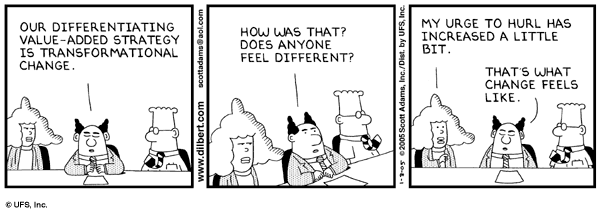Every community has its lingo.
(If you don't believe me, just ear hustle on a group of teenagers the next time you are in line at the movies. Assuming you're not a teenager yourself, you may just learn a word or two!)
Nonetheless, making fun of "in-group" language, whether you call it jargon or slang, is a common human reaction. Why? Noticing how *others* talk helps us (in turn) identify *ourselves.*
Our ability to draw on "different ways" of speaking helps us build relationships. Depending on who you're talking to, and what the setting is, you can "play up" certain phraseology or pronunciation in order to send the meta message that, "I'm like you" or "I get you." Linguists study how we "style shift" depending on who we are speaking to, and depending on the context of the conversation. We vary our style all the time. It's part of being "successful" in life. If you address a police officer who has pulled you over for speeding in the same way that you console a fussy baby, you might provoke a misunderstanding...or worse!
My first semester of grad school, I wrote a paper on corporate jargon. In the years prior, I had taken notes during business meetings, as I noticed "new" phrases and words that I associated with the "corporate world," the "management consulting world," or the "world of government contracting." My anecdotal observation was that, the higher you climbed the corporate ladder, the more "strong" your corporate "accent." I was desperately curious to find out if there was a correlation between being "proficient" in jargon and career success.
So, I designed a short survey to investigate...Nearly ninety colleagues, at all levels in the organization, responded to questions designed to
1. Gauge their attitudes toward the "jargon"
2. Invite them to identify words/phrases they associated with "our lexicon"
3. Determine which happened more often: Did they use the jargon more than others, or did others use it more than they did?
The project was therapy for me, and it turned out to be a huge empathy-fest for my colleagues/informants. The survey's high response rate (over 80%!) signaled to me that I was not the only one who was intrigued by this interesting phenomenon. The list of words and phrases and commentary signaled that I was not the only one who felt a certain dis-ease (or disgust!) with "our lexicon."
The most interesting result was related to item number (3.) above: 83% of respondents indicated that it is their colleagues, not they themselves, who are using the jargon. There are many possible explanations for this result, including lack of self awareness, denial, and flaws with my survey sampling and survey design.
What do you think?

